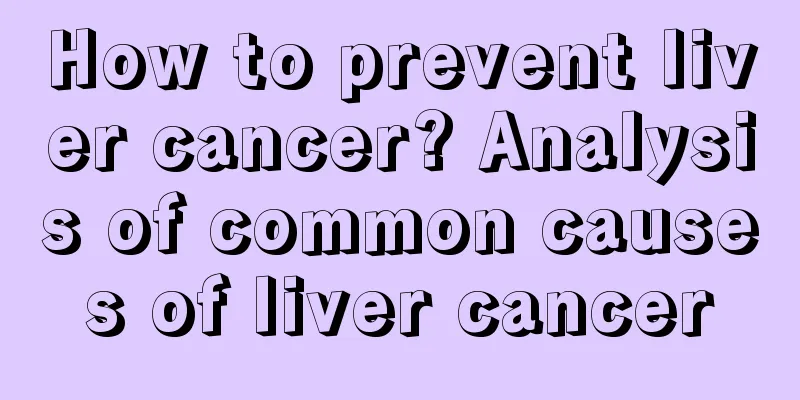Things to note in the recipe for appendicitis

|
After suffering from appendicitis, many people will choose to have it removed. Although appendicitis removal is only a minor operation now, there are still many things to pay attention to in life after the operation, especially making some adjustments in diet, so that the body can recover as soon as possible. Good living habits and eating habits are very important, and patients with appendicitis should also maintain good habits after recovering from the illness. What can't you eat if you have appendicitis? 1. Do not drink alcohol and avoid eating raw, cold, or spicy foods. Eat less fried and indigestible foods. 2. Avoid overeating and eat small meals frequently. 3. Use drugs with caution, especially some antipyretic, analgesic and anti-inflammatory drugs, which can cause great irritation to the gastrointestinal tract and even gastrointestinal bleeding or perforation in severe cases. It is best not to use them or use them sparingly. 4. Adjust your diet structure, eat more vegetarian food and less meat; eat more soft food and less hard food. Eat less spicy and greasy food, and eat more vegetables and fruits. Supplement nutrition appropriately and strengthen physical exercise. 5. The meat of animals with warm nature, such as lamb, beef, and dog, should be consumed in moderation, and onions, ginger, garlic, and chili peppers should not be eaten too much. 6. Foods that have the effects of clearing heat, detoxifying and removing dampness, such as mung beans, bean sprouts, bitter melon, etc., can be eaten selectively in moderation. What to eat after appendectomy surgery 1. First of all, postoperative patients should eat nutritious and easily digestible food, but the food should not be too fine so as not to affect the recovery of gastrointestinal digestive function. Eat more crude fiber foods to help gastrointestinal motility and bowel movements. Pay attention to the balanced combination of various nutrients, and keep up with the supplement of vitamins. Eating more vegetables will help recovery, especially green leafy vegetables. Please note that you should use less salt. 2. During the recovery period, you should avoid drinking strong coffee and tea, and try to eat less fried foods. Avoid eating spicy foods such as leeks, onions, garlic, etc. Try to eat less sweet or cold foods. 3. After surgery, pay attention to increasing protein intake, such as chicken, fish, and related soy products. Fish soup helps heal wounds. Eat more vegetables and fruits, avoid spicy food, and do some appropriate activities to increase gastrointestinal motility and prevent intestinal wall adhesion. 4. It usually takes two to three months to recover after the operation. During this period, you should be careful not to be overly tired, maintain a happy mood and good sleep quality, do not drink alcohol, and avoid sexual intercourse. If you feel any discomfort in the wound or other parts of your body after surgery, you should consult a doctor immediately. |
<<: Recurrence rate of conservative treatment of appendicitis
>>: How to take care of appendicitis and abdominal bloating
Recommend
Tips for removing scale from kettle
There are many life hacks that most people are no...
Who are the suitable groups for orthodontic treatment?
Many of our friends have uneven teeth, which not ...
Three major benefits of soaking sea buckthorn in wine
Seabuckthorn is a wild fruit whose skin is covere...
Is acupuncture effective in treating cerebral infarction?
Cerebral infarction is a common disease in life. ...
Diet and health care for gallbladder cancer
In the early stage of gallbladder cancer, there a...
How to relieve numbness in the little finger
It is common to feel numbness in a certain part o...
Liver cancer staging standards
The staging standards for liver cancer mainly inc...
What disease causes fever and itching of the skin?
People who do not like living in tropical and hum...
Is it better to take contraceptive pills before or after meals?
Nowadays, people's sexual concepts are gradua...
It turns out that the early symptoms of vitiligo are these four
Vitiligo is a skin disease that is often seen in ...
What to do if the skin turns black after a burn
Being accidentally burned is a very painful thing...
What is the reason for blue eye bags
Eye bags are not unfamiliar to people, and the se...
How can I wash off the oil stains on my clothes?
Having a lot of oil stains on clothes is a vexing...
Where is the best hospital for colon cancer transplantation
In recent years, the status of early treatment of...
How long does it take for scraping to be effective for weight loss
As a new way of health preservation, scraping has...









